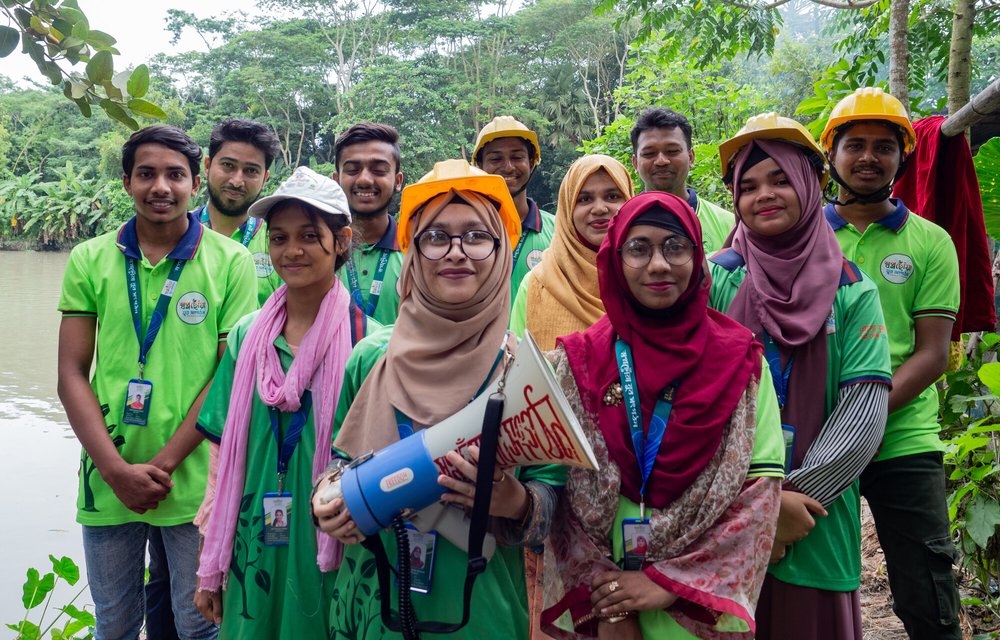- How we work
- Oxfam's CEO and Leadership
- Plans, reports and policies
- Working at Oxfam
- Keeping people safe
- History of Oxfam
- Frequently asked questions
- Where we work
- Oxfam: the story so far
- Safeguarding
- The Inclusive Language Guide: When we include everyone we can overcome poverty
- Oxfam and the private sector
- Oxfam Scotland
- Oxfam's Trustees
Oxfam: the story so far
A kinder and radically better world is possible. Let's take action to make it happen.
A youth group in Barishal, Bangladesh, that works with the WAVE Foundation, an Oxfam partner, on reducing disaster risks. Photo: Elizabeth Stevens/Oxfam.

“If we could focus on tackling inequalities and injustices effectively, I’ve no doubt this would help create a kinder, fairer world for us all.”
Dr Halima Begum (Oxfam GB CEO, 2024-2025)
For a radically better world
What we do
Awssan Kamal
Yemen has been in the midst of war for years now. We need to stand with those calling for an end to this war, and secure inclusive and lasting peace.”
Awssan Kamal, Conflict & Fragility Lead for Oxfam GB
Challenging global inequalities
Photo: Loliwe Phiri / Oxfam
With the introduction of the solar-powered sprinkler system, it became very easy for us.”
Ottilia, a participating farmer, for the Ruti Irrigation Project in Zimbabwe
Razigah used to run a small shop, but was forced into bankruptcy. A cash transfer helped her to restart her business. She keeps prices low and margins tight, but can live independently. Image: Kaff Media / Oxfam
I have a grocery shop. I started three or four years ago, when Oxfam helped me with this project... Our life improved, we buy small things that we can afford like cooking oil and other small home items.”
Razigah in her grocery shop in Yemen.
How we'll do it
“Radical, lasting change will only happen if we give as much weight to how we work as to what we do.”
Dhananjayan Sriskandarajah (Oxfam GB CEO, 2019-2023)
Photo: Andrew Mboya/Oxfam
Our partners will lead us
Oxfam has worked with local organisations in Kenya to support those in critical need in communities in Marsabit and Turkana County.
In this picture, Patricia Lotieng, WASH Coordinator at Oxfam partner TUPADO, hands a sanitary kit to Margaret Ekamai, a program participant.